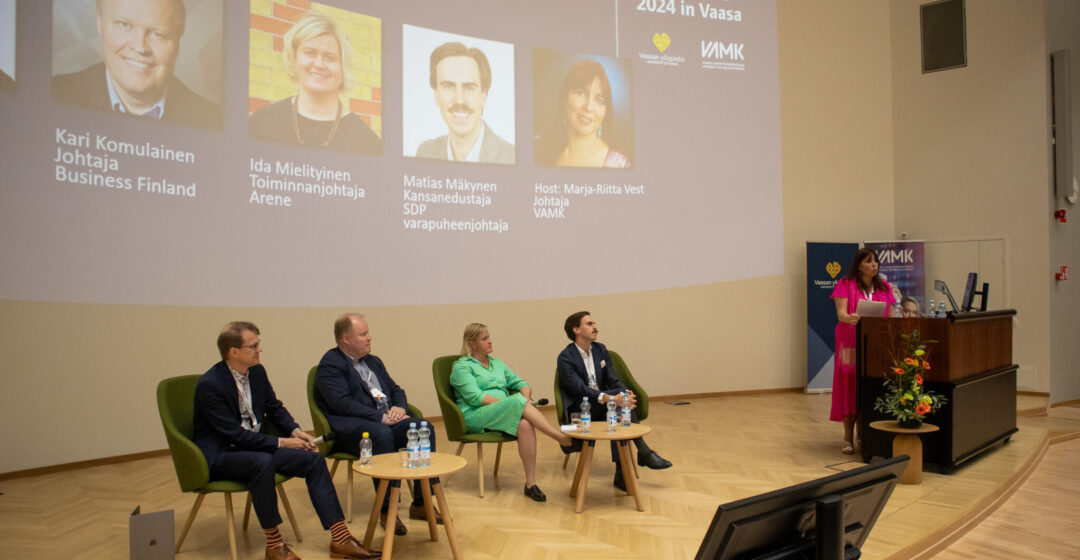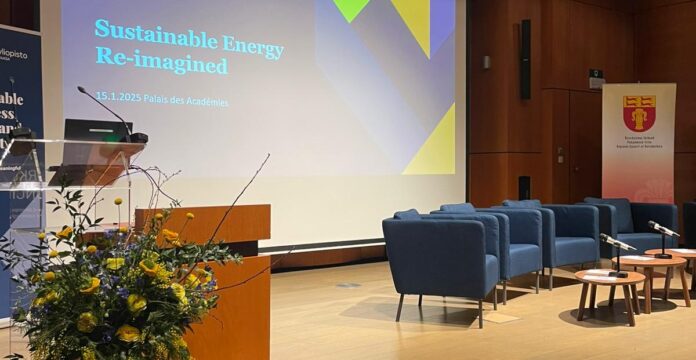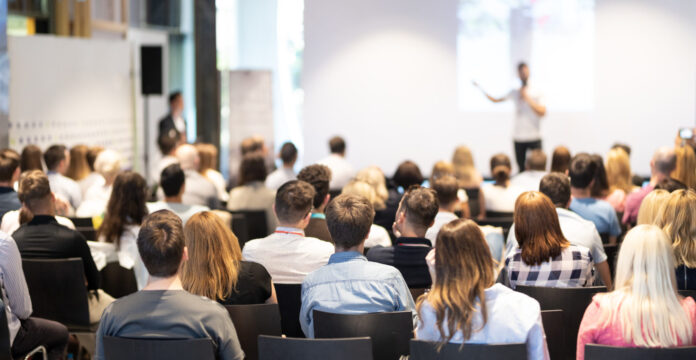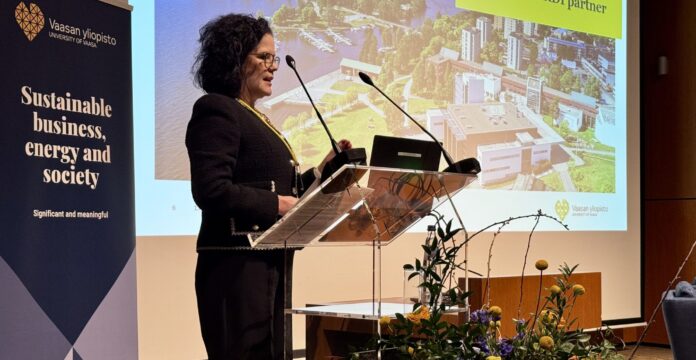Research Service Days is a national event for research managers and service staff at Finnish institutes of higher education. The hosting duty is shared on a rotational basis in different universities, and in August 2024 it was time for the University of Vaasa and Vaasa University of Applied Science (VAMK) to co-host.
Over 350 attendants from all over Finland and internationally participated in the two-day event with five tracks of sessions, four keynote speeches, a panel discussion, and a drum solo from Kai Hahto (if you don’t know him, google “Nightwish”). With a packed programme and lively discussions both inside and outside the workshops and sessions, the participants co-created value through spreading best practices and networking between institutions.
Yet looking at it from the outside, it might be worth while to open up the world of research services to other parts of the higher education community. Our work supports the University of Vaasa, the researchers and educators as well as the administration and management. But what do we actually do? And why do we need events to do it?
Looking at the programme, three of the keynote speeches and the panel discussion were focused on innovation and policy. Evgeni Evgeniev, policy officer, European Commission, and Elina Holmberg, Senior Director, Business Finland, both discussed EU research and innovation from the point of view of European policies and how we as universities and institutions should act not only in compliance but proactively to ensure we can maintain competitiveness. This topic was further picked up in the panel discussion between Matias Mäkynen, Member of Parliament, Kari Komulainen, Senior Director, Business Finland, Ida Mielityinen, Executive Director, Arene, and Mika Grundström, Vice Rector, University of Vaasa, on the future of Finland’s research, development and innovation system. Capped up with a message from Olli Suominen, Ministry of Foreign Affairs of Finland, about research and innovation in the global context, the shared message was that Finland has a lot of room to grow innovation activities but we need to understand the global political context to do it strategically. Research services support researchers by liaising with policy and ministry officials to keep our lines of communication open and promote the University of Vaasa in the EU and the different global networks Finland takes part in.
The sessions delved deeper into the hands-on responsibilities research services tackle with. Track 1 focused on pre-award, which is one the main areas researchers at the University of Vaasa turn to us for. Three of the nine sessions focused directly on impact in funding applications, as for example in the opening workshop by Leena Köppä on Navigating Impact Metrics – How to craft KPIs for research funding proposals. Similar issues clearly come up in most Finnish universities as topics ranged from writing applications to figuring out the funding mechanisms with a side of sustainability and role of AI thrown in. These are conversations we continue to have both within the university and with the wider community to ensure that we know how to communicate the impact of our research to ensure competitiveness of our applications.
Track 2 took a look at the post-award phase and again impact rose up as the most discussed phenomenon in four out of seven sessions. The importance of impact may be more explicitly communicated in EU funding but it is increasingly clear that we must be able to not just show what the impact is but have defined measures for it in all levels of applications. Simple metrics are no longer sufficient to qualify for funding but we must be able to think of impact in data management, in open science, in career development, in the way we work throughout the project and the kind of collaborations we forge, in order to prove our worth. To understand these multiple layers of how we draft our applications and communicate what we do and how we do it, research services continues to seek latest knowledge and best practices.
Responsible and open science were discussed in track 3, with a focus on tools and systems that support research ethics. On the whole, people want to engage in ethical science but the key thing is to ensure that they have access and knowledge of the right support systems. Open science is still a work in progress and to live by the mantra of as open as possible, as closed as necessary, we have work to do in making sure researchers are aware of the possibilities of how to be open in a safe, responsible manner. These topics were further explored in track 5 of data and openness where the focus was more precisely in data management both in day-to-day research work and in terms of compliance and preparing for the future. The groundwork for systematic change and future-proofing is where we engage right now, to ensure that the University of Vaasa is up to date to meet the challenges on how to operate responsibly, openly, and ethically while maintaining efficiency and competitiveness.
Finally, track 4 looked more in depth on research collaboration harking back to the discussion from the keynotes and EU level collaboration both with policy-makers and within European co-operation networks, as well as bringing in outside views from company collaboration. Aapo Kiviniemi and Hanna Listenmaa from KPMG gave a sponsor presentation about the new possibilities of company co-operation from the company point of view, while other sessions took a research view on impact in collaborations with the business sector. Research services has an important role in reaching out both to the public and private sectors, as well as be involved in networks of higher education institutes to drive the university’s interests and embeddedness in all levels of society, and to seek international opportunities.
The Research Service Days brought together hundreds of people with the purpose of learning and sharing how to improve the work we do in our respective institutions to benefit our researchers and Finnish research and higher education as a whole. We need these events because the work is multi-layered and needs input from political entities, private enterprises, social actors, organisations and individuals willing to put in their time and effort. The learning we have gained from this event will influence how we do things and what kinds of systems we build, ultimately evident to researchers in the responses they get to their emails, the support they receive when drafting applications or receiving decisions to them, the training courses available to them, the systems they use, the feedback we give, and many other actions we take visibly or behind the screens. And this is why we need events like the Research Service Days. And a lot of coffee.





